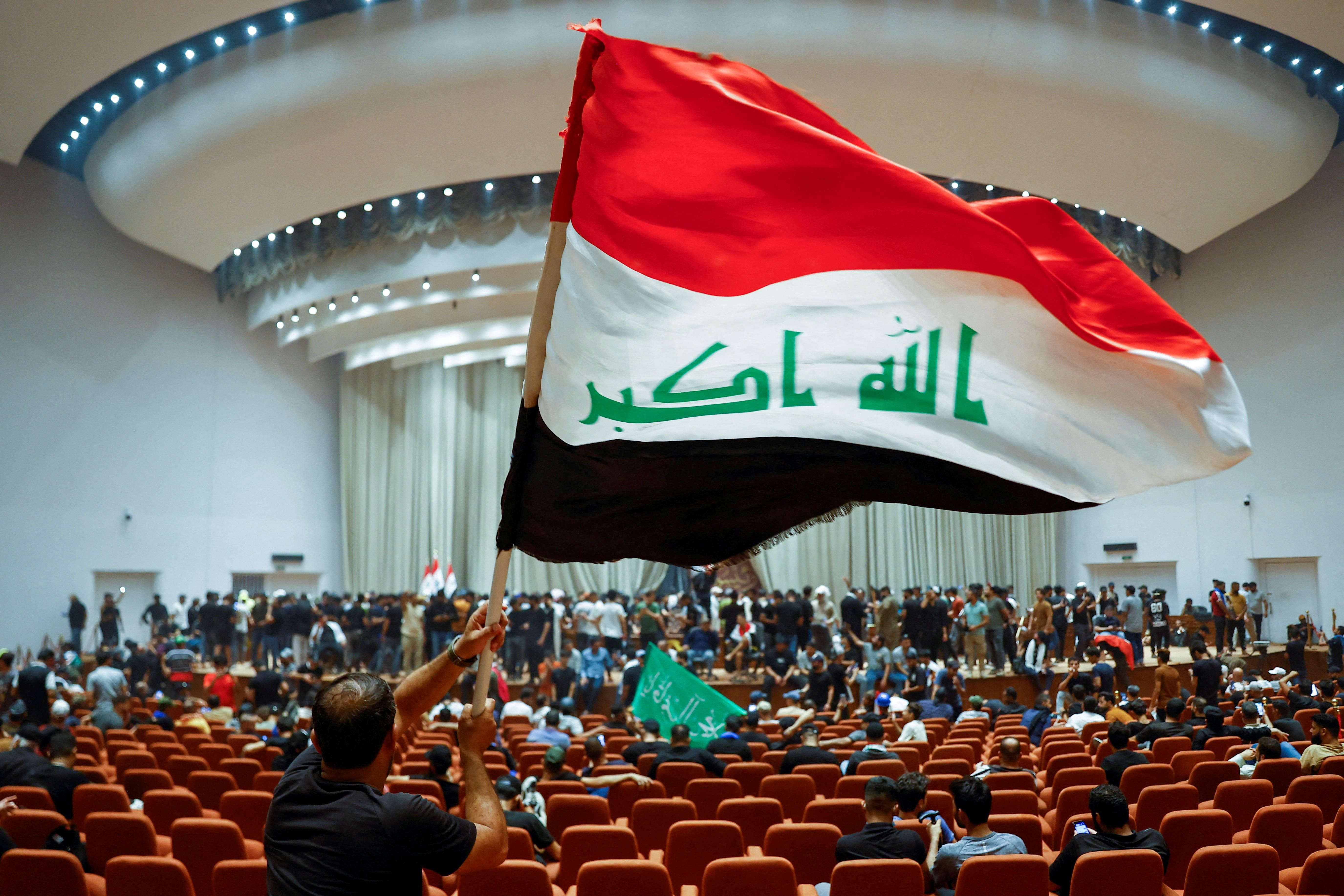Hard Numbers: Iraqi parliament occupied, Chinese manufacturing slows, El Salvador to buy back debt, Spain going tieless
125: At least 125 people were injured over the weekend after supporters of Iraqi cleric Muqtada al-Sadr stormed parliament for a second time in three days to reject a pro-Iran candidate for PM. The protesters now say they'll camp out there until further notice, raising the stakes for the stalled formation of a new government.
49: China's manufacturing activity index fell unexpectedly to 49 in June (below 50 indicates contraction). Zero-COVID and weak global demand are doing a number on the Chinese economy, to the point that the ruling Communist Party has stopped talking about its growth target for the year.
1.6 billion: El Salvador wants to buy back $1.6 billion worth of its sovereign debt at much lower market prices to avoid default. Well played by President Nayib Bukele if he’s already secured the cash; otherwise, it's a recipe for accumulating even more debt.
27: In a nod to making casual Fridays an environmental policy option, Spain's PM Pedro Sánchez is ditching his necktie, and asking office workers to follow his example to save energy. They'll certainly need to do so at the Environmental Transition Ministry, which is now running the AC at a warmer-than-usual 27 C (80.6 F).